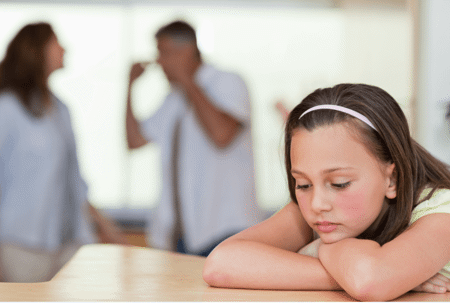While we are keeping our communities safe from the deadly coronavirus by following stay-at-home orders, we are also putting children at greater risk of suffering abuse and neglect in their homes. According to the most recent child abuse and neglect data available, the Administration for Children and Families found that of the approximately 3,534,000 million children investigated in 2018, 678,000 were determined to be victims of maltreatment. Important to note, 60.8 percent of the victims were neglected, 10.7 percent were physically abused, and 7.0 percent were sexually abused. “This report again demonstrates that most children enter the foster care system, not from physical abuse, but from neglect,” said Jerry Milner, associate commissioner of the Children’s Bureau. “All too often, we know that neglect is closely tied to poverty and therefore requires us to pinpoint our focus on strengthening communities to meet the basic needs of families to increase their capacity to care for their children in safe and loving homes” said Milner.
Unfortunately, the economic toll of the coronavirus outbreak has made it even more difficult to support underserved populations and has exacerbated the existing economic hardships of those living in poverty. Several unique factors created by the nationwide effort to contain the coronavirus have increased the likelihood that children are being abused and neglected and have decreased the ability to detect and report these incidents, including:
- Stress: As schools and workplaces close, many parents are experiencing heightened stress. Compounding this problem, children with behavioral problems are likely to act out when their parents’ tension levels rise. Please read this article for helpful information on coping with stress.
- Economic Instability: In March, more than 10 million Americans lost their jobs and applied for unemployment benefits, the worst spike in joblessness since the Great Depression. Some economists are predicting this figure will double by July. The ripple effects of job loss include housing insecurity, loss of health insurance and inability to provide the essentials to your family. If you or someone you know is currently looking for work, this article can provide some direction.
- Lack of Supervision: Parents who are working outside of the home may be unable to provide adequate supervision to their children, as schools, preschools, and daycare providers are forced to close. Further, Parents are discouraged from seeking help from elderly relatives, as the risk of exposing them to the coronavirus is too high. Parents in this situation may be unintentionally harming their children.
- Difficulty Reporting Warning Signs: Due to remote learning mandates and stay-at-home orders, teachers and pediatricians are less able to detect warning signs of abuse and neglect. According to the U.S. Department of Health and Human Services, teachers, administrators, school counselors and other educational professionals report 20% of incidents of child maltreatment. Whenever possible, teachers should be checking in with students virtually, if they fear their students are not being adequately supervised.
- Fewer Governmental Resources: State agencies tasked with detecting child abuse and neglect have scaled back services to curb the spread of the virus. Foster care providers, many of whom are elderly, are less willing to open their doors out of the fear of exposure to the coronavirus. States who have dealt with periods of home isolation before are more prepared to face child abuse and neglect issues than others. Florida, for example, has useful procedures in place from previous hurricane-related emergencies, including mandatory social worker virtual visits every 3o days. If a Florida caseworker suspects abuse, they will speak to the child in person, out of earshot of the rest of the family. They will also bring toys, supplies, books, and gift cards to the families.
While government leaders chose the lesser of two evils when they mandated home isolation in an effort to save lives, many unfortunate consequences may come, including an increased risk of child abuse and neglect.

